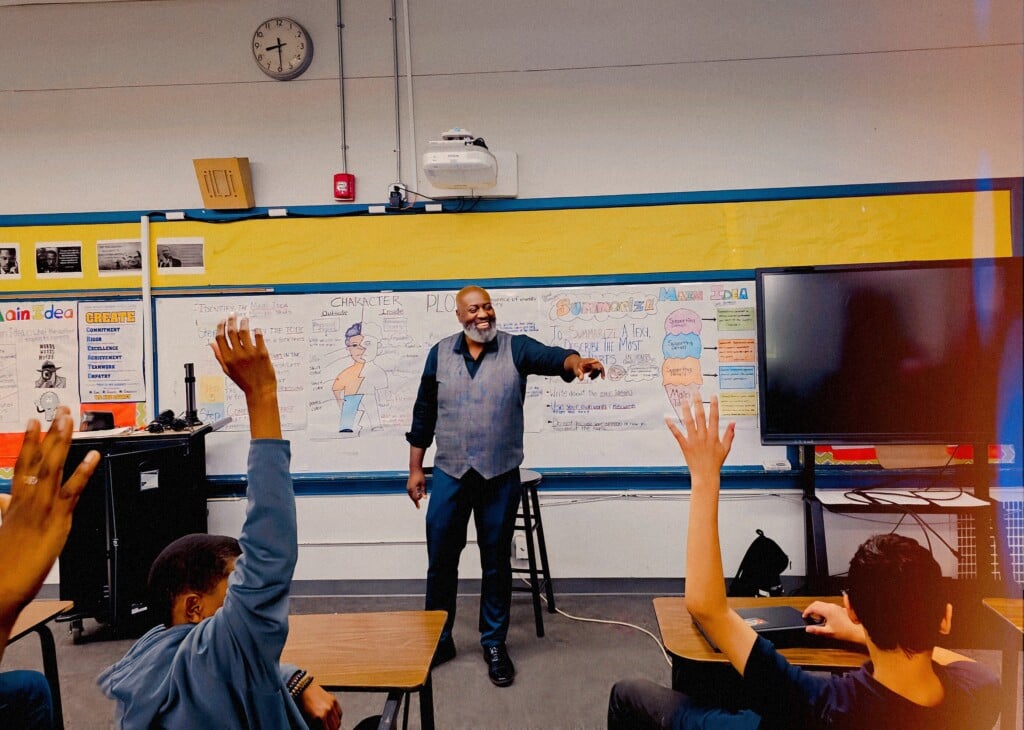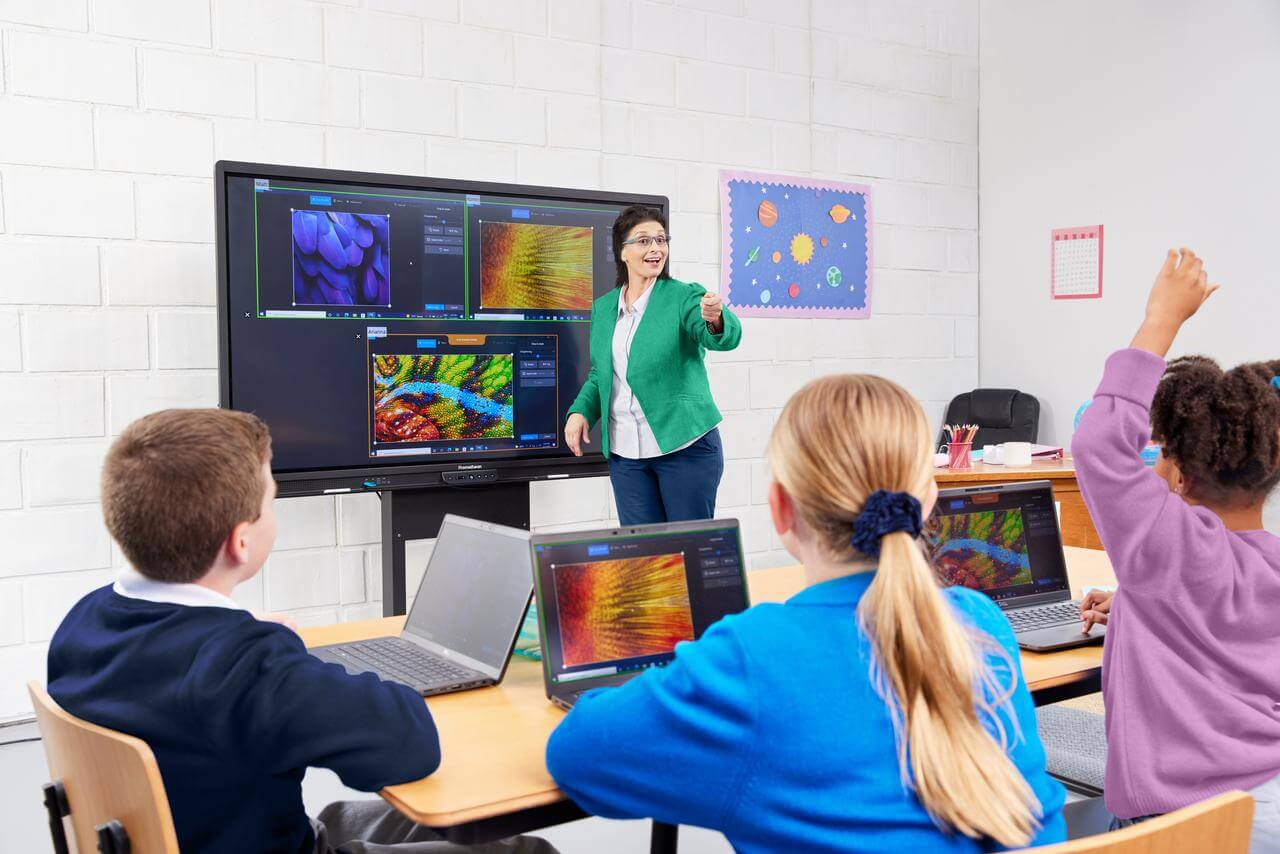Unlock Your Child’s Potential with Primary Science Tuition Singapore
Discovering the Different Teaching Strategies in Main Science Education And Learning Today
The landscape of main science education and learning is evolving, with numerous training methods acquiring prominence in contemporary class. Inquiry-based learning, hands-on experiments, and the combination of modern technology are redefining exactly how educators involve young minds. In addition, joint approaches and distinguished direction are being utilized to satisfy the diverse requirements of students, boosting both interaction and understanding. As we check out these methods, questions arise regarding their effectiveness and the effects for future educational practices. What might these shifts in technique mean for the future generation of learners?
Inquiry-Based Understanding
Inquiry-Based Discovering (IBL) is an instructional strategy that encourages students to explore clinical concepts through wondering about, examination, and hands-on experimentation. This approach highlights the duty of pupils as energetic individuals in their knowing, promoting important thinking and analytic skills. By engaging with real-world questions, pupils come to be inspired and interested, which boosts their understanding of clinical principles.
In IBL, educators work as facilitators, leading students as they browse their queries instead of providing details straight. This student-centered approach permits distinction, fitting numerous finding out designs and paces. Trainees establish abilities in creating theories, designing experiments, and assessing information, which are vital for clinical literacy.
In addition, IBL cultivates partnership among trainees, encouraging them to share findings and ideas. This collective query promotes social skills and a sense of neighborhood within the class. Moreover, the procedure of query urges durability, as trainees discover to welcome failing as a tipping rock towards understanding.
Hands-On Experiments
Hands-on experiments are a vital part of effective science education, complementing the principles of inquiry-based understanding. These experiments enable students to engage directly with clinical principles, cultivating a deeper understanding through experiential discovering. By controling materials and observing end results, young learners can comprehend abstract theories in substantial methods.
Such activities advertise vital thinking and problem-solving abilities, as students assume outcomes, conduct experiments, and evaluate outcomes. This process motivates them to ask inquiries, improve their understanding, and develop a scientific mindset. Furthermore, hands-on experiments can be customized to diverse understanding designs, ensuring that all trainees have the opportunity to engage meaningfully with the material.
Furthermore, hands-on experiments typically motivate cooperation among peers, advertising synergy and communication abilities. Working in groups enables students to share concepts, go over searchings for, and pick up from one another, which improves their overall instructional experience.
Incorporating hands-on experiments into the main science educational program not only enhances the finding out setting but also grows a lifelong interest in scientific research. By actively joining their education, pupils are extra most likely to establish a passion for clinical questions that extends beyond the class.

Technology Assimilation
Integrating modern technology right into main science education and learning has come to be significantly essential in promoting student engagement and boosting discovering results. Making use of electronic tools, such as interactive simulations, virtual laboratories, and educational software program, provides pupils with possibilities to explore scientific concepts in cutting-edge methods. These sources facilitate a deeper understanding of complex subjects by enabling students to imagine and control variables that would certainly be not practical in a typical class setup.
Furthermore, modern technology integration motivates individualized discovering experiences. Students can progress at their own speed, reviewing difficult principles through multimedia sources, which satisfy different knowing designs. This adaptability not just sustains private growth however also grows a feeling of autonomy in learners.
Additionally, modern technology serves as a bridge to real-world scientific research, attaching trainees with present research study and specialist contributions. Access to on-line data sources and scientific journals broadens pupils' viewpoints on clinical query and cultivates important believing skills.
Collaborative Discovering
Joint understanding plays a crucial role in key science education by cultivating synergy and interaction abilities among pupils. This strategy encourages learners to collaborate, share understanding, and take part in problem-solving, which enhances their understanding of clinical principles. By joining team tasks, trainees learn to verbalize their ideas, listen to varied viewpoints, and discuss services, every one of which are essential skills in both real-world and academic contexts.

Research shows that collaborative discovering can bring about boosted motivation and interaction in scientific research topics, as pupils locate enjoyment in shared experiences (primary science tuition Singapore). Furthermore, this method prepares pupils for future collaborative undertakings, equipping them with the abilities necessary for efficient team effort in higher education and learning and expert settings. Inevitably, embracing collective learning in primary science education can significantly enhance the knowing experience and promote a much deeper understanding of scientific query
Distinguished Guideline

Differentiated instruction can materialize useful site in numerous means, such as differing the material, processes, or products of discovering. As an example, educators might make use of tiered assignments that give differing degrees of complexity, allowing students to operate at their respective readiness levels. Additionally, versatile organizing strategies can promote partnership among students with different abilities, fostering peer discovering.
Analysis plays a crucial role in this approach, as it informs instruction and aids instructors recognize each pupil's unique requirements. Formative assessments, such as quizzes and monitorings, can assist educators in adjusting their approaches to boost discovering outcomes. primary science tuition Singapore. Eventually, by implementing separated guideline in key scientific research education and learning, instructors can grow an extra fair and reliable discovering setting, empowering all pupils to reach their full capacity in understanding clinical sensations
Conclusion
In recap, the varied teaching techniques in main science education and learning, consisting of inquiry-based discovering, hands-on experiments, technology integration, joint understanding, and set apart instruction, jointly add to a more efficient discovering environment. These methods promote essential thinking, problem-solving skills, and a much deeper comprehension of scientific concepts. By executing these strategies, teachers can develop helpful and appealing class that deal with the diverse requirements of pupils, ultimately cultivating a lifelong passion in scientific research and improving scholastic accomplishment.
Inquiry-Based Discovering (IBL) is an instructional approach that motivates pupils to discover scientific ideas through questioning, examination, and hands-on testing.Collaborative knowing plays a crucial role in main scientific research education and learning by promoting team effort and interaction abilities among pupils.Study indicates that joint knowing can lead to raised motivation and engagement in science subjects, as trainees find satisfaction in common experiences.In fostering a comprehensive learning environment, distinguished direction arises as a crucial approach to suit the varied needs and abilities of pupils in navigate here main science education. Inevitably, by carrying out set apart direction in main science education and learning, teachers can cultivate a much more fair and reliable learning setting, empowering all trainees to reach their complete potential in comprehending clinical phenomena.